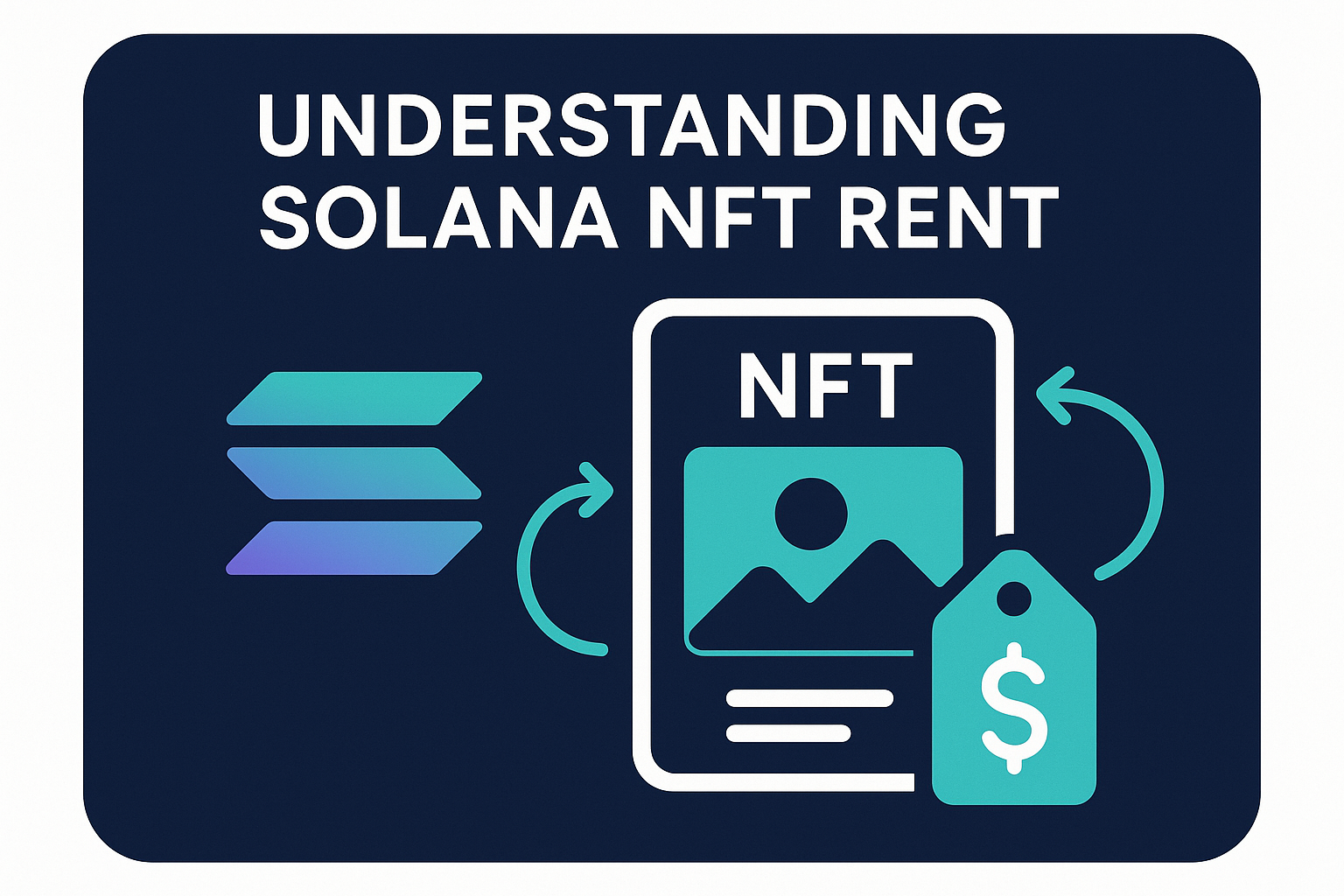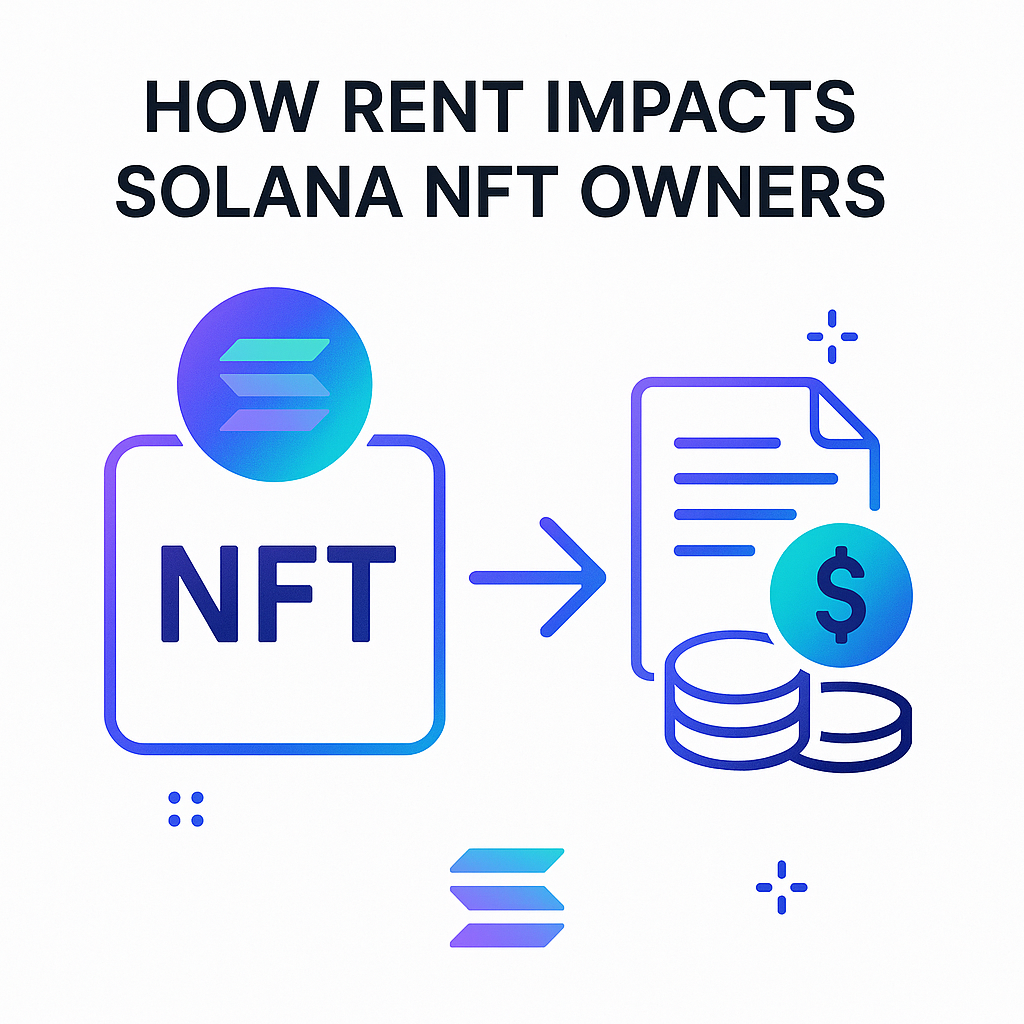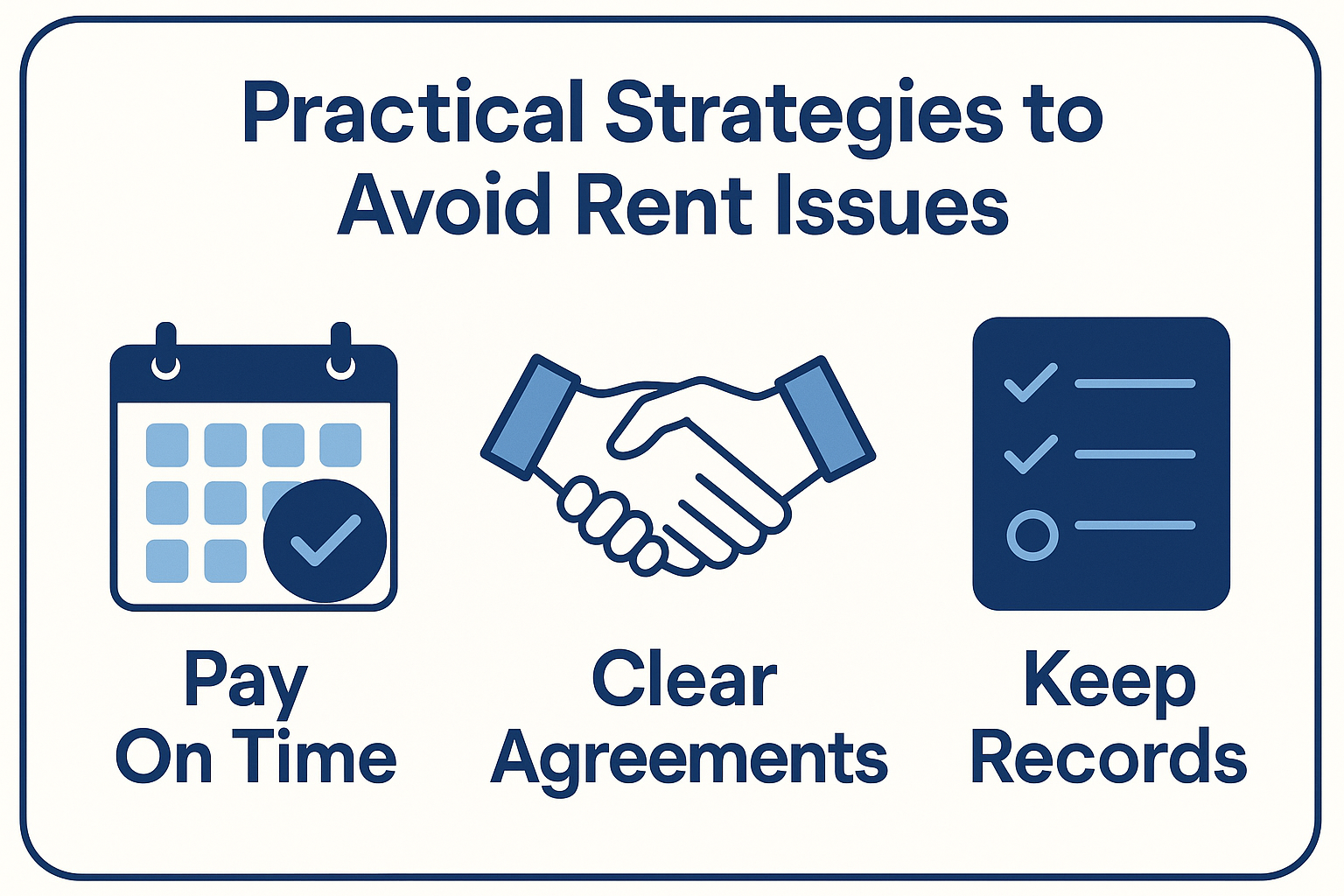
Solana NFT Rent: What It Is and How to Avoid It
Worried about Solana NFT rent? Learn what it is, why it exists, and how to avoid it. Keep your NFTs safe on the Solana blockchain!
Solana NFT Rent: What It Is and How to Avoid It
Imagine buying a Solana NFT, excited to add it to your collection, only to discover you need to pay "rent" on it. Sounds strange, right? It's a unique aspect of the Solana blockchain, but don't worry; it's manageable! Solana NFTs are gaining immense popularity, offering a vibrant ecosystem for digital art and collectibles. This blog post will explain Solana NFT rent and provide actionable strategies to avoid it, whether you're an NFT collector, a Solana developer, or simply a blockchain enthusiast.
Understanding Solana NFT Rent

To understand Solana NFT rent, you first need to grasp Solana's account model. Unlike Ethereum, which uses a contract-based model, Solana utilizes an account-based model. This means everything on Solana, from wallets and programs to NFT metadata, is stored in an account. These accounts require SOL (Solana's native cryptocurrency) to exist and remain active on the blockchain.
Rent, in this context, is a small fee charged for storing data within these accounts on the Solana blockchain. Think of it as a minimal storage fee. It's designed to incentivize efficient storage practices and prevent the blockchain from becoming cluttered with inactive or abandoned data. If an account doesn't have enough SOL to cover rent, it becomes inactive, and the data it contains, including your NFT, could be reclaimed and potentially lost.
Solana uses rent to maintain network performance and scalability, prevent spam and resource exhaustion, and encourage developers to optimize their storage usage. The good news is that accounts can be "rent-exempt" if they hold a minimum balance of SOL. This minimum balance covers the cost of storing the data for a very long time, typically decades. Most NFT marketplaces and wallets automatically ensure that newly created NFT accounts are rent-exempt, which takes the burden off the user.
How Rent Impacts Solana NFT Owners

The primary concern for Solana NFT owners is the potential risk to their NFTs if the SOL balance associated with the NFT falls below the rent-exempt threshold. This is especially crucial for NFTs stored in wallets with very low SOL balances or NFTs forgotten in old, inactive wallets.
One of the most common misconceptions is that rent is a recurring fee that you have to pay regularly after the initial NFT creation. This is generally not the case. Rent exemption is usually handled automatically by marketplaces and wallets during NFT creation. However, it's still essential to be aware of the underlying mechanism.
There have been stories of users who almost lost NFTs due to insufficient rent. While these situations are becoming less common with improved wallet and marketplace practices, they highlight the importance of understanding and managing rent. Some NFT projects proactively address rent concerns by providing resources or tools for their holders.

Practical Strategies to Avoid Rent Issues
Avoiding rent issues on Solana NFTs is quite straightforward with the right practices:
* Ensuring Rent Exemption: When buying or minting NFTs, always use reputable marketplaces and wallets like Phantom, Solflare, Magic Eden, or Tensor Trade that automatically handle rent exemption. Verify that the transaction includes enough SOL to make the NFT account rent-exempt.
* Maintaining Sufficient SOL Balance: Keep a small amount of SOL in your wallet to cover rent, even if your NFTs are already rent-exempt. A little extra SOL acts as a safety net. Consider consolidating your NFTs into fewer wallets to minimize the overhead of rent exemption.
* Using Reputable Wallets and Marketplaces: Choose wallets and marketplaces that prioritize security and user experience, including rent management. Phantom, Solflare, Magic Eden, and Tensor Trade are reliable choices.
* Regularly Checking Your Wallet Balance: Periodically check the SOL balance of your wallets that hold NFTs. Set up alerts or reminders to ensure you don't fall below the rent-exempt threshold.
* Transferring NFTs to a Safer Wallet: If you're concerned about the security or rent status of an NFT in an old wallet, transfer it to a more secure and actively used wallet.
* For Developers: Optimizing Storage: Developers creating NFT projects should optimize their smart contracts to minimize storage requirements. Consider using compressed NFTs to further reduce storage costs.
Tools and Resources for Monitoring Rent Status
Several tools and resources are available to help you check the rent status of your Solana NFTs:
* Solscan and other Solana Block Explorers: Use block explorers like Solscan.io to view the details of your NFT accounts and check their SOL balance. Solscan allows you to see if an account is rent-exempt. You can simply enter your wallet address or NFT address to view the information.
* Wallet Interfaces: Some wallets, like Phantom and Solflare, provide a clear indication of the rent status of your NFTs directly within the wallet interface. Look for features that show the SOL balance required for rent exemption.
* Third-Party Tools: While less common, keep an eye out for third-party tools or services that can help monitor rent status. The Solana community is constantly developing new resources.
The Future of Solana NFT Rent
The Solana ecosystem is constantly evolving, and the rent model may see changes in the future. There are ongoing discussions and proposals to modify the rent model on Solana to make it even more user-friendly. Staying informed about these developments is key.
Innovations in storage solutions are also emerging. Compressed NFTs, for example, are gaining traction as a way to significantly reduce storage costs on Solana. These technologies promise to make NFT ownership even more efficient and affordable.
Solana NFTs are generally considered a viable long-term option, provided you take appropriate steps to manage rent. The Solana Foundation and the developer community are committed to ensuring the long-term viability of the ecosystem.
Conclusion
Solana NFT rent is a unique aspect of the platform, but it's manageable with the right knowledge and strategies. By using reputable wallets and marketplaces, maintaining a sufficient SOL balance, and staying informed about changes in the Solana ecosystem, you can protect your Solana NFTs and enjoy the benefits of this exciting blockchain.
Call to Action
* Check your Solana wallet balances today to ensure your NFTs are safe!
* Share this article with other Solana NFT enthusiasts to help them understand rent.
* Join our community to discuss Solana NFTs and stay up-to-date on the latest news. (Link to a relevant community, e.g., Discord, Telegram).
* Learn more about Solana development and how to optimize NFT storage. (Link to Solana developer resources).
